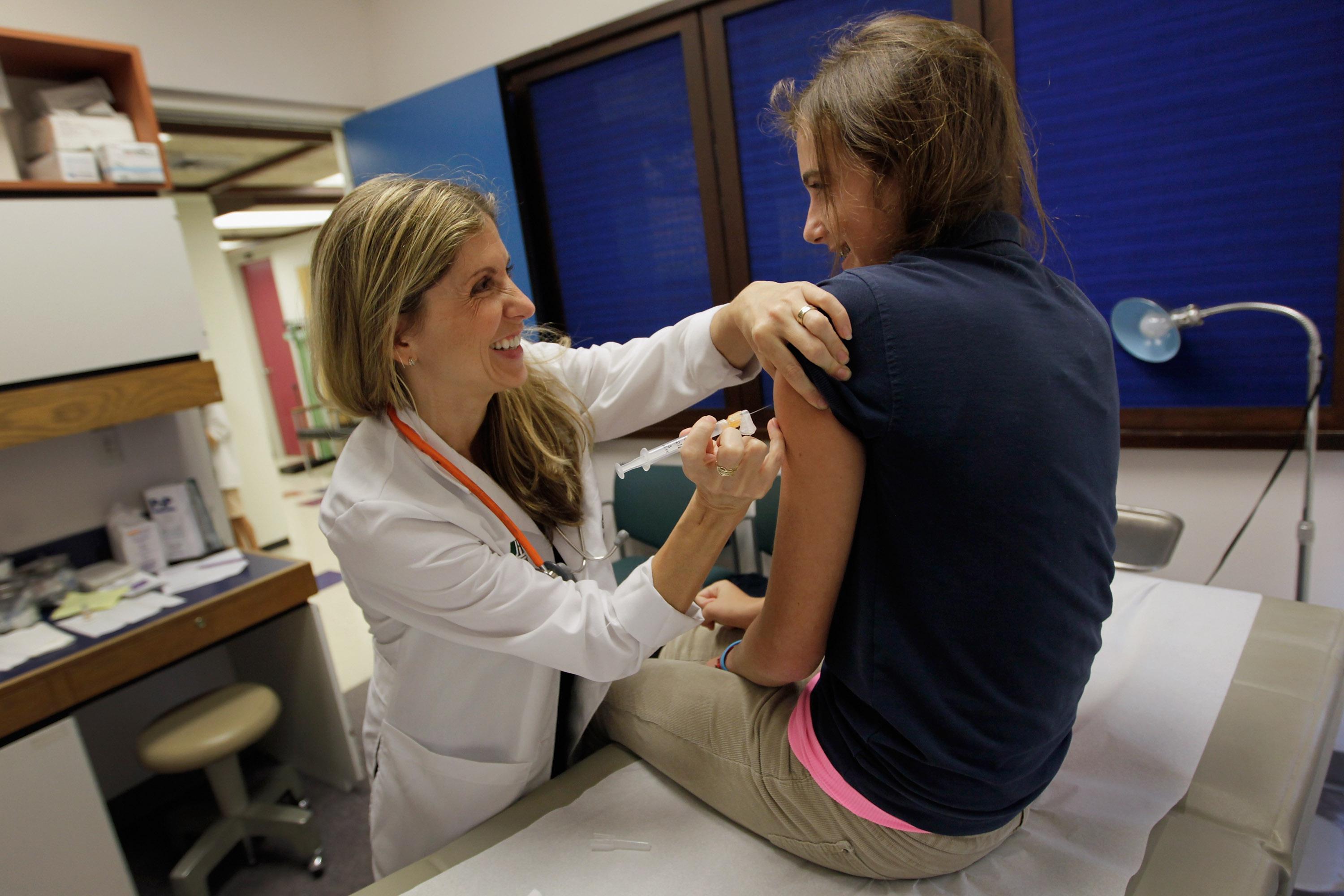Not even the measles, mumps, and rubella vaccine can beat the HPV vaccine when it comes to brewing anti-vaccination hysteria. On top of the usual baseless fears that vaccines have “toxins,” there’s also a widespread concern that the HPV vaccine, which prevents a common STI that can lead to cervical cancer, will cause girls to become promiscuous. The fear is that by signaling to your daughter that you believe she will probably have sex one day, you are giving her “permission” to have sex right now. Yale researchers found that this fear is the primary reason parents reject the HPV vaccination, leading to a situation where more than 40 percent of teen girls remain unvaccinated.
New research shows that this fear of teen girl promiscuity is completely unfounded. In a paper published in the Journal of the American Medical Association, medical researchers from Harvard and the University of Southern California compared the rates of transmission for other STIs like chlamydia, gonorrhea, and herpes between vaccinated and unvaccinated girls. If parental fears about the HPV vaccine are right, we should see a spike in these STI rates for the vaccinated girls, because of all the unrestrained sex. But researchers found no such link. There is no reason to think the HPV vaccine influences sexual decision-making one way or another.
This study comports with a previous one, published in 2012, that measured girls’ self-reported sexual activity and found no link between getting the vaccination and having more sex. This new STI study just confirms that finding with biological evidence. Of course, common sense should tell you that fear of HPV is just not on the list of considerations when a teenager is choosing sex, not when larger concerns like unintended pregnancy are in the mix. In addition, the HPV vaccine is about providing coverage well into adulthood. Refusing to give a girl the vaccine reads like you’re saying that you expect her never to have sex, which is, you know, irrational. But, as recent weeks have shown, rationality isn’t always a factor when a parent develops a fear about a vaccination.
This wall of irrational fear is one reason that pediatricians might continue to struggle with parents refusing the HPV vaccine, as evidence has shown that neither logic nor research can really get through to a parent who has decided that vaccines are dangerous. However, there is a ray of hope here. As NPR reported earlier this week, research shows that if doctors simply present vaccinations as standard care instead of opening it up to discussion, parents were much more likely to go along with the vaccination. The results were, in fact, startling. If the doctor opened the conversation by baldly stating that the vaccine is due, 70 percent of parents went along with it, whereas when doctors asked parents what they wanted to do, 83 percent decided against the vaccine.
While more research is needed regarding the HPV vaccine in particular, this study suggests that a matter-of-fact approach is best. No need for hand-wringing discussion about sexual choice-making with parents. Just note that the HPV vaccine is due when a girl turns 11 or 12 years old. If the parents bring up concerns about sex, these studies might put their fears to rest. But in the end, this isn’t really about sex at all, but about preventing a viral infection that can cause cancer.
